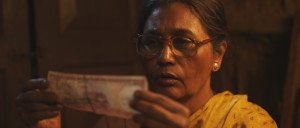1063 people reached – 44 engagements on Lassi with Lavina FB page
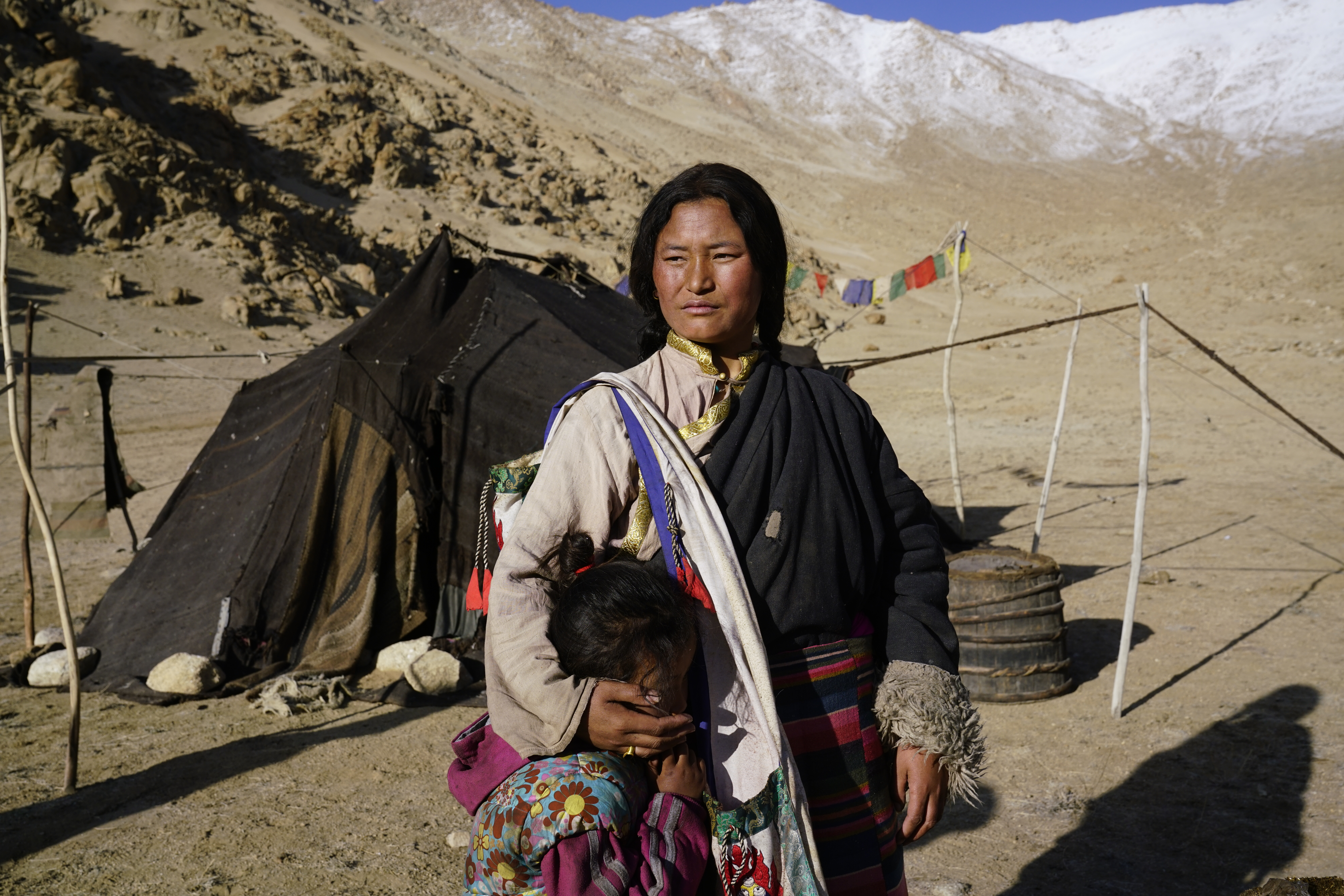
The Sweet Requiem – Do Not Forget Tibet
In the Name of a Lost Land – a Dark, Powerful Tale
[dropcap]T[/dropcap]here was a time when most people had seldom encountered refugees. Now with the way the world is churning, almost everyone has seen them, if not in person then on the unending television news which plays out like a disturbing war drum. Yes, now we’ve seen refugees from all over the world and on America’s borders. But perhaps we know the least about the tragic Tibetan refugees who lost their country many years ago to the Chinese autocrats, never to return to it – except in their dreams or nightmares.
.Now we have ‘The Sweet Requiem’, a tangible reminder of Tibet and all that’s been lost. It is a story of Tibetan refugees who have fled to India but are still connected by the umbilical cord with their devastated home country. Can they ever return? These exiles live on in Dharamshala and in Delhi, not so far from Tibet – and yet so far.
The Sweet Requiem
[dropcap]T[/dropcap]he Sweet Requiem opens with an unforgiving snow-covered landscape, a father and a young daughter struggling through the desolate Himalayas and suddenly gunshots ring out. It then cuts to a Tibetan refugee colony in Delhi, 18 years later. The little girl Dolkar is now a 26-year-old exile living in Delhi but the perilous, tragic trek she took with her father across the Himalayas is the trauma which haunts her. Even as she lives her life in the Tibetan exile community, she is once again accosted by her past when she encounters Gompo, the guide who had abandoned them during their escape. Can there be closure or should there be retribution for the betrayal? In this very humanistic tale you learn about human frailties and imperfections, the power of forgiveness and the strength of memories and love.
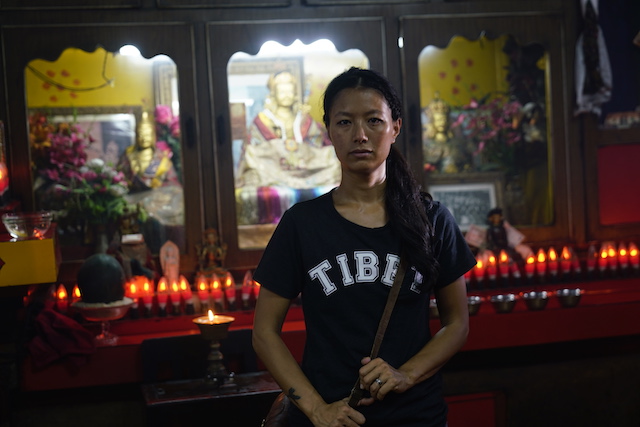
[dropcap]E[/dropcap]xiles lose so much and the pain of the past is always with them. The Sweet Requiem puts it all on the big screen with stunning cinematography and beautiful performances by a cast of very natural actors. Filmmakers Ritu Sarin and Tenzing Sonam have told this story of exile and loss with sensitivity. It is a story which has to be told and retold again and again so that the world does not forget Tibet and the lives which are lived out in exile.
The Sweet Requiem won the Audience Award at the 2019 Aurangabad International Film Festival (India) and NETPAC Award – 2018 Kolkata International Film Festival (India)
It has shown in over 20 film festivals including the 2019 Human Rights Watch Film festival in both UK and the US as well as 2019 Durban International Film Festival (South Africa) and the 2019 Sydney Film Festival (Australia)
Your chance to see this powerful film if you’re on the West Coast. It is releasing today on 10 screens in the Bay area.
More details at https://sweetrequiem.comFacebook: https://www.facebook.com/thesweetrequiem/Twitter: https://twitter.com/thesweetrequiem
Face to Face with Filmmakers
Ritu Sarin and Tenzing Sonam
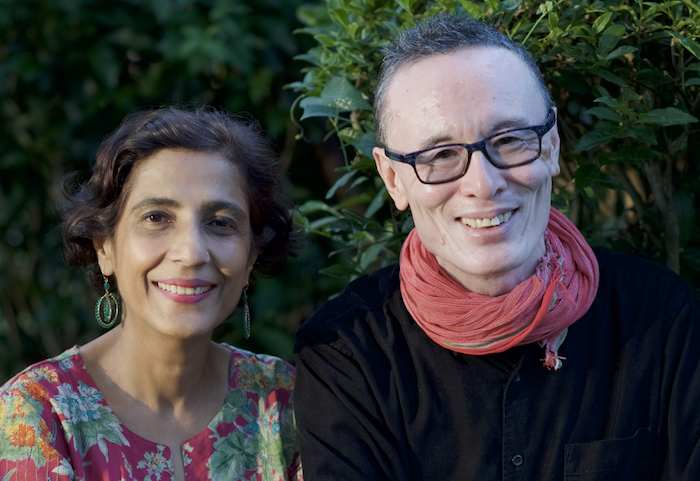
[dropcap]F[/dropcap]ilmmakers Ritu Sarin and Tenzing Sonam are an Indian-Tibetan couple who have always kept the cause of Tibet front and center in their films. Through their production company, White Crane Films, which they started in 1991, they have made several documentary films, video installations and one dramatic feature film. Their documentary films include: The Reincarnation of Khensur Rinpoche (1991), The Trials of Telo Rinpoche (1993), and The Shadow Circus: The CIA in Tibet (1998), all commissioned by the BBC.
Their documentary, The Sun Behind the Clouds (2009), was theatrically released in the US and kicked off with a two week run at New York’s Film Forum. It won the Vaclav Havel Award at the One World Film Festival in Prague. Their latest documentary, When Hari Got Married (2012), premiered at Films From the South, Oslo, and has shown at DOK Leipzig and IDFA Amsterdam. Their debut feature film, Dreaming Lhasa (2005), was executive produced by Jeremy Thomas and Richard Gere, and had its world premiere at Toronto International Film Festival and its European premiere at San Sebastian International Film Festival. In 2012 they launched the Dharamshala International Film Festival, which is now one of India’s leading independent film festivals.
-
The Sweet Requiem is understated yet so powerful. What’s the backstory on it?
The immediate catalyst for The Sweet Requiem came from an incident in September 2006. Chinese border guards opened fire on a group of escaping Tibetans on the 19,000 ft Nangpa La pass between Tibet and Nepal. This incident was captured on video by a Romanian mountain climber who happened to be near the scene and the video was subsequently made public. The shock and horror of seeing this cold-blooded murder raised many questions in our minds and directly led to the writing the story of the film.
At the same time, my partner Tenzing and I have lived in Dharamshala for over 20 years and have been closely connected to the exile Tibetan community. Tenzing is himself a first generation Tibetan born in exile. During the 90s and 2000s, there was a second wave of Tibetan refugees crossing the mountains to come to India, and among them were many young children. Their families sent them to India to get a Tibetan education in one of the Tibetan refugee schools set up by the Dalai Lama’s government-in-exile. Most of these young children never went back to Tibet and many lost contact with their families. They are now in their 20s and 30s and we know several such persons and wanted to tell their stories. The incident on Nangpa La gave us the hook to hang their story on.
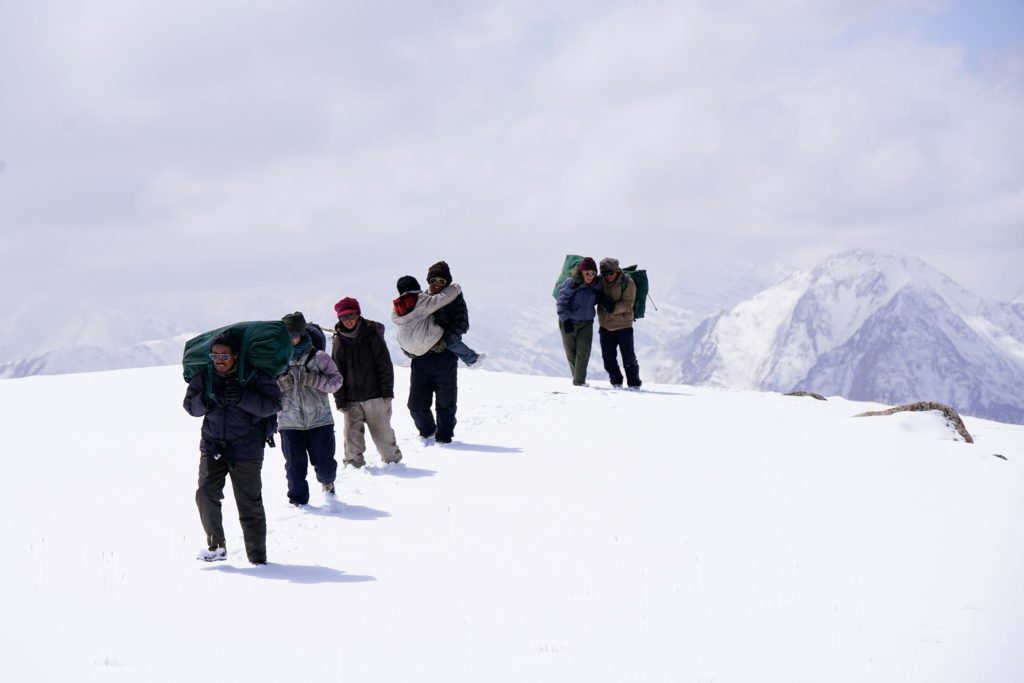
The escape party treks through the snow in Ritu Sarin & Tenzing Sonam’s The Sweet Requiem. Photo: Pablo Bartholomew 2. How did you find the actors for it? Are there many Tibetans involved in acting or is it non-actors?
There are no professional Tibetan actors in exile, just as there is no Tibetan film industry, so all our actors were non-professional. Jampa Kalsang, who plays the role of the guide Gompo, is the most experienced having acted in a number of films including our own first feature, Dreaming Lhasa. We sent out a casting call on Tibetan social network and received many applications. Finding the right person to play the role of Dolkar, the lead role in the film, was our top priority. We knew that if we didn’t find her, we wouldn’t be able to make the film. So when Tenzin Dolker sent us her audition tape, we were thrilled; we knew that we had found Dolkar!
3. How difficult is it for the refugees living in Delhi and Dharamshala to move on with their lives?
Generally speaking, the Tibetan refugee community in India has been very successful in establishing itself in India. The Indian government has been exceptionally generous in allowing them to set up their own school system and maintain their monasteries and cultural institutions. But the younger generation of Tibetans born and brought up in India do face problems. They find themselves caught between two worlds – the Tibetan and the Indian – and despite being well educated, find it hard to fit into the larger Indian world.
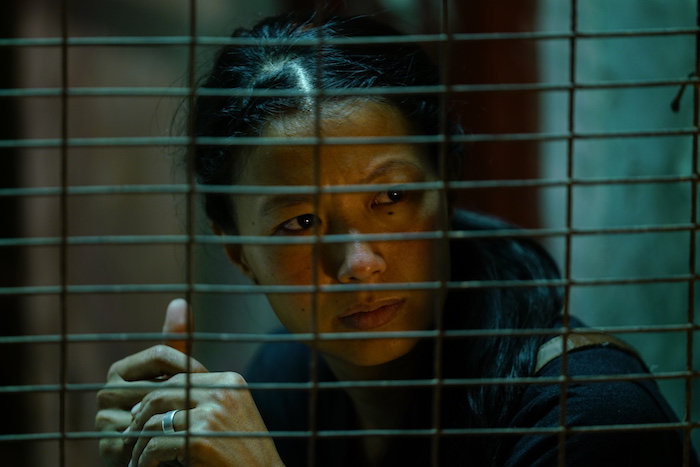
Tenzin Dolker in Ritu Sarin & Tenzing Sonam’s The Sweet Requiem Photo: Pablo Bartholomew
4.The Sweet Requiem seems to hit home especially hard with the refugee crisis becoming so international. What reaction have you been getting?
We were very conscious that our story tells a common story of refugees all over the world, the trauma and suffering of leaving behind home and family. So many children also get caught in these tragic circumstances. And this is especially relevant at this point in time, when the refugee and migrant situation is so pressing internationally. Wherever we’ve shown the film, we’ve had extremely positive and sympathetic response.
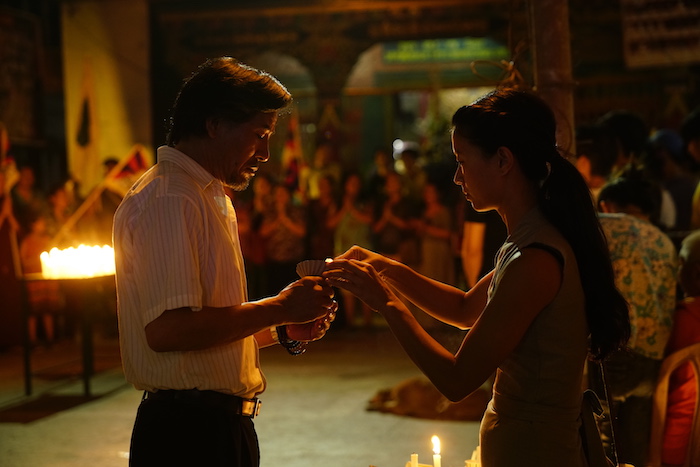
Jampa Kalsang And Tenzin Dolker (LtoR) in Ritu Sarin & Tenzing Sonam’s The Sweet Requiem – Photo: Pablo Bartholomew
5. What do you hope viewers take away from The Sweet Requiem?
We want to convey the universality of the refugee experience and hope that the viewer will look at this with compassion and sympathy. At the same time, we want to remind people that the Tibetan situation continues to be dire and needs global attention.
6. Tell me about the Dharamshala Film Festival and how you both are involved with it.
We moved to Dharamshala in 1996 and realized that there was very little by way of contemporary art and cinema available in the region. Being filmmakers and having been to many film festivals, we thought we could start a small festival with the goal of bringing high quality independent films from India and around the world to our town. That’s how the Dharamshala International Film Festival (http://diff.co.in) started in 2012. It quickly established itself as a key independent film festival in India and now we get visitors from all over the country coming specifically to be a part of it! This year will mark the eighth edition of the festival and will take place from November 7 to 10.
7. Has The Sweet Requiem been shown in India other than at festivals?
The film has shown in most of the important film festivals in India but at the moment there is no talk of a theatrical release. Of course, we would love the film to show to a larger Indian audience, particularly as Tibetans are such an integral part of the Indian landscape and yet so little is known about them.
Related Articles:

